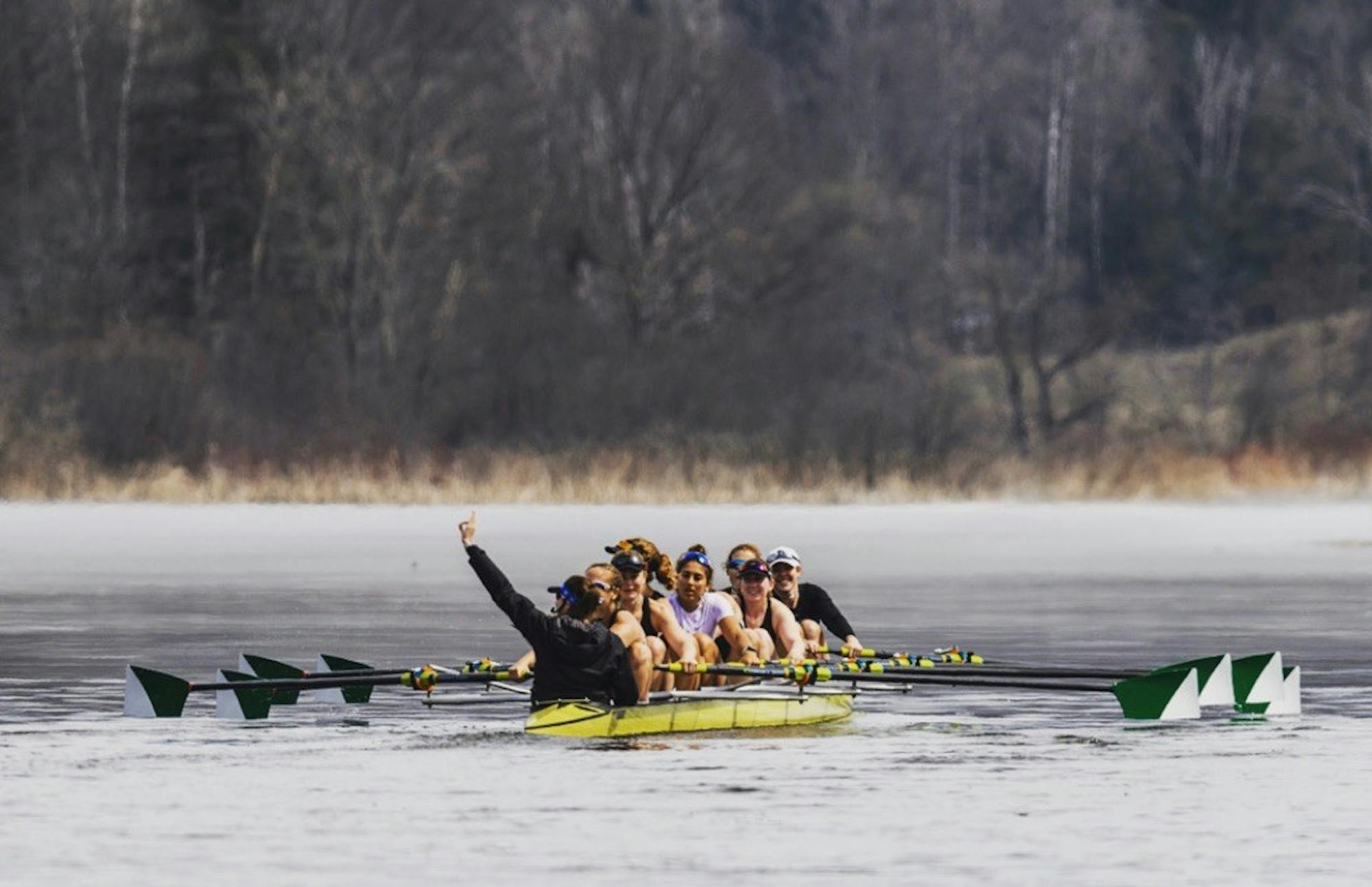When Anne Kakela ’92 came to Dartmouth, she originally planned to be part of the ski team. Kakela grew up riding horses and skiing in Steamboat Springs, Colo., but made the decision to walk onto the women's rowing team upon arriving at Dartmouth because she wanted to try something new. At Dartmouth, Kakela was a two-year captain and was named to the first-team U.S. Rowing Collegiate Academic All-America.
After Dartmouth, Kakela competed for the U.S. National Team from 1992 to 1996, during which the team earned silver medals at the 1993 and 1994 World Championships and won gold in 1995. Kakela capped off her career with the national team at the 1996 Atlanta Olympics, where the team finished fourth overall.
Following her professional career, Kakela took a six-year intermission from the sport working in network security before she returned to the sport she loved. In 2003, Kakela began her coaching career at Oregon State University, where she was named the 2005 Northwest Region College Rowing Coaches Association Assistant Coach of the Year. Following her success at Oregon State, Kakela began coaching in the Ivy League for the University of Pennsylvania in 2006. Kakela began coaching for the national team at the 2012 London Olympics and continues to coach the national team today.
What is a lesson you learned as part of Dartmouth athletics that has helped you in your career?
AK: Rowing became three careers for me: national team athlete, college coach and national team coach. There were a number of skills that transferred to other careers in the business world as well: goal-setting, teamwork and confidence. Setting benchmarks in terms of getting faster and stronger and dealing with obstacles in a more successful way is something I developed throughout my rowing career. When I got into consulting later and when I was teaching, these skills were very transferable. Teams, whether athletic or in the workforce, need to have respect, value and appreciation for each other, otherwise it can be hard to keep a team working towards a common goal together.
What was it like coaching a national team boat at one of the highest levels?
AK: I have coached athletes to the U23 World Championships, World Championships and Olympics. I have also coached college freshman and novice teams. In many ways, when working with motivated athletes and managing the team dynamic, the coaching approach is similar regardless of the level of the boat. As a coach, one must identify next steps for producing more boat speed and keeping messages short, sweet and as clear as possible.
It is important to not let drama affect the boat.That comes with getting to know your athletes as people and helping them work through whatever is going on as a team. Sometimes that means encouraging communication. Sometimes it means stepping in and directing. We work on coming together and keeping focus in the boat. This is where respect for teammates, versus needing to like each other, can be a valuable lesson.
The biggest difference between college athletes and elite athletes is the life balance. At Dartmouth there can be a lot of distractions balancing academic, extra-curricular and social commitment with athletics. However, at the national and high levels there’s a pretty exclusive commitment to training with minimal distractions.
What was it like transitioning from an athletic career to working in corporate jobs?
AK: The process of switching was extremely challenging and rewarding. I had always wanted to experience some sort of corporate career. I went back to school to get a masters degree which was a good transition. Working at Accenture was what I was looking for at the time — wearing business clothes instead of sweaty Trou shorts, giving presentations, traveling to customer sites regularly and attending training sessions to improve my work.
Working at Nokia was similar but more challenging. The first difference was I went from actively moving my body for work to sitting and staring at a computer screen all day. Additionally, I went from being a rower on an all-female team to being the only female in the room. It didn’t bother me because I had always had close male friends growing up, but being in that environment day in and day out — where you are constantly being questioned and have to prove yourself over and over — was definitely challenging. I think that my background as an athlete and the confidence I had in myself is what got me through those experiences.
What are you trying to accomplish in the next four years?
AK: Getting my kids out of the house and on successful life paths is my main project. My kids are approaching the age of going to college and we moved to help my mom back home, so I am answering this question as I'm trying to figure out for myself what my next career move is going to be. I have been working with a property management company but it’s not really how I see myself impacting the world. I view life as a journey, and my philosophy has been to take advantage of doors that open for me. Sometimes you have to be courageous and you always have to work hard to take advantage of those opportunities. They can lead you to new and rewarding experiences that you cannot necessarily see ahead of time.
What is something still on your bucket list to do in Hanover?
AK: I need to visit the Dartmouth Skiway! I've never been. Though when I came into college I thought that I was going to race with the Dartmouth ski team, but once I signed up for rowing I never actually made it onto the ski team or to the Skiway for that matter.
This interview has been edited and condensed for clarity and length.




